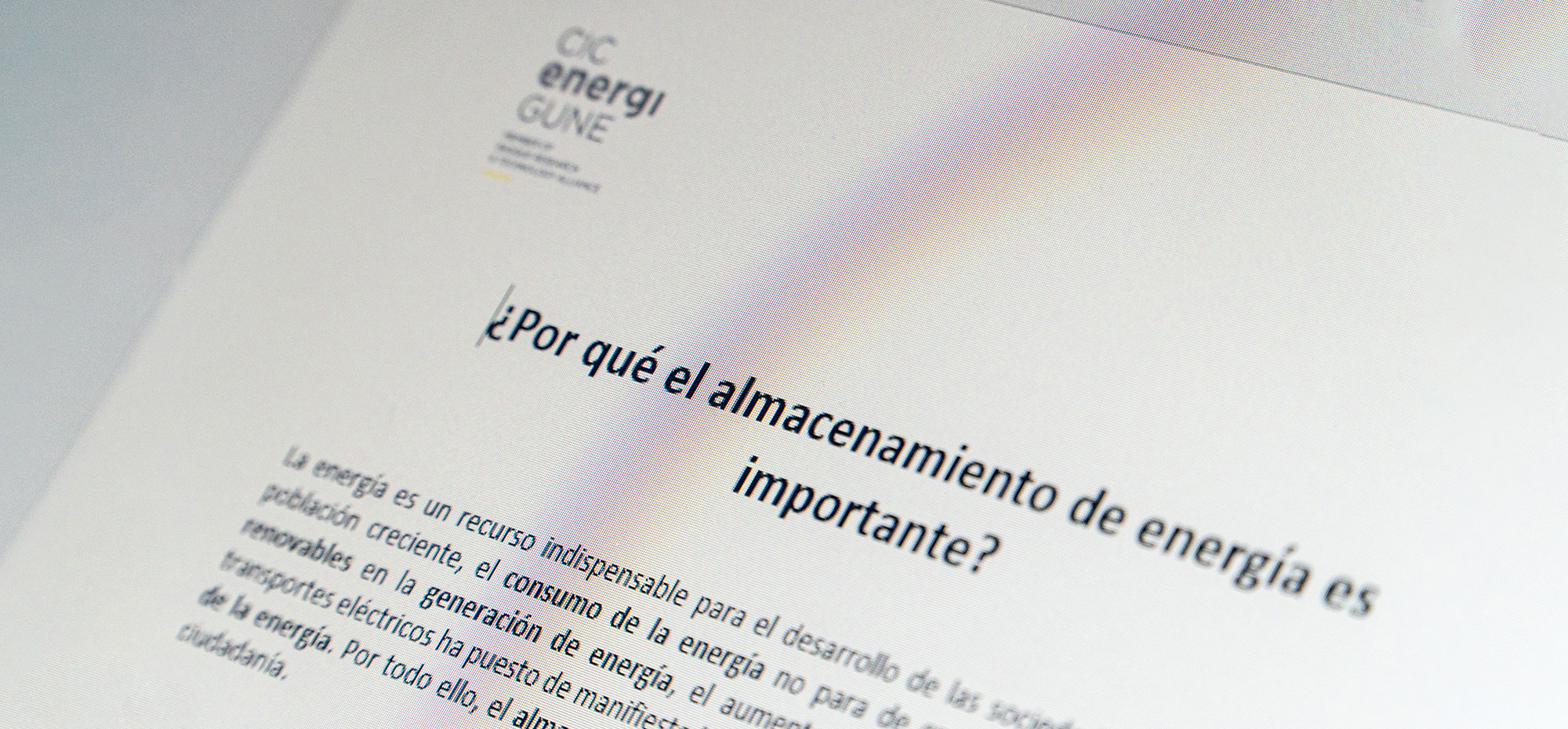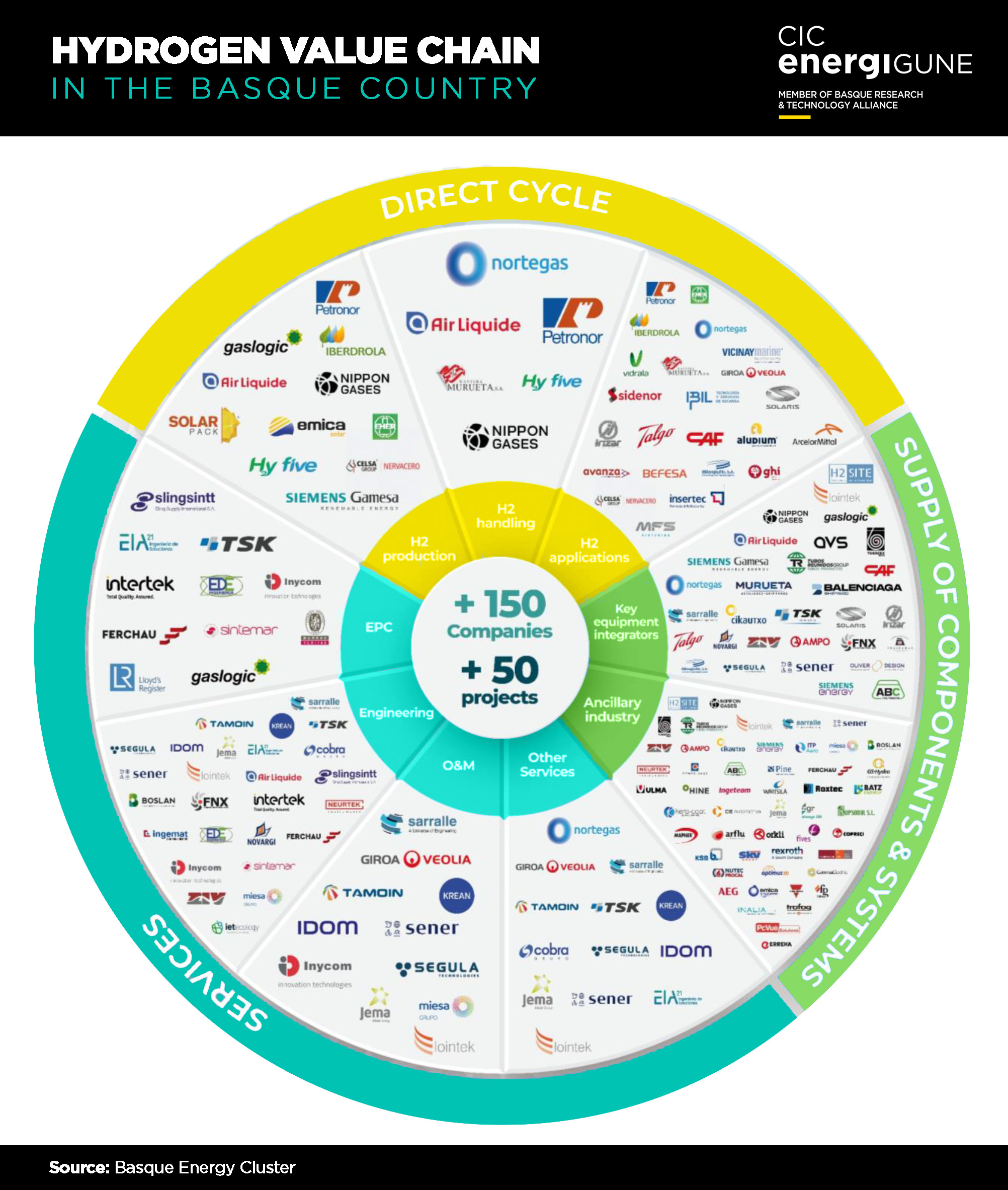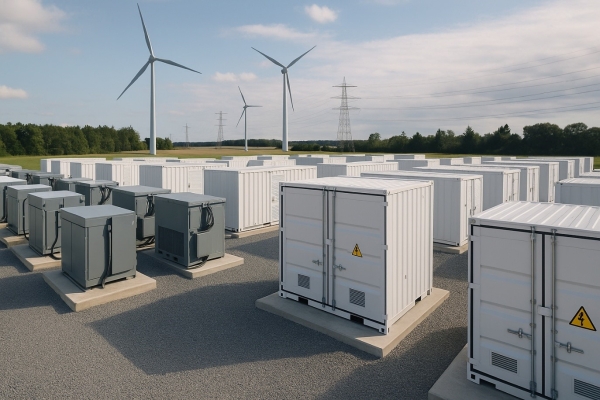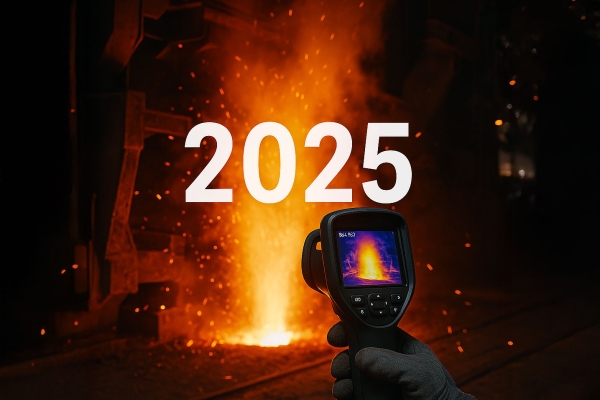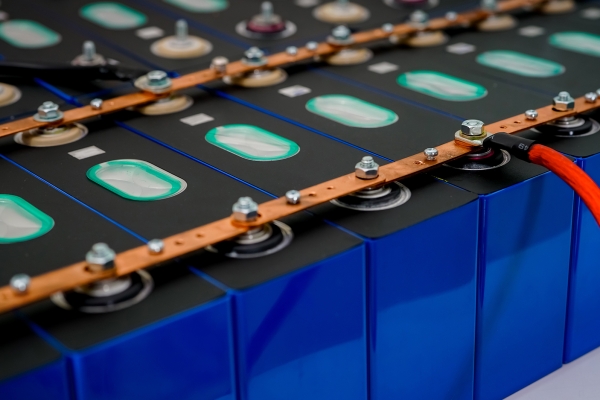Mainly thanks to the development of different institutional and industrial strategies as well as the investment that different companies and entities based in the territory are making in this new energy vector.
In addition, the region´s scientific and technological capabilities complement this high-potential ecosystem both for the region´s energy sector and for its economy and employment.
As we have mentioned on previous occasions in our blog (and according to data from the Energy Cluster of the Basque Country), the energy sector currently represents a total annual turnover of around 55 million euros in the Basque Country (of which approximately 25% is associated with direct activity in the Basque Country). These figures represent the creation of almost 91,000 jobs worldwide and around 24,000 in the region, which positions the industry as one of the key sectors and drivers of the territory.
Hence the importance that both the regional government and the companies themselves are giving to the transition to these new technologies, which aspire to be one of the major players in the energy future of any country.
INSTITUTIONAL COMMITMENT
The path that Euskadi is opening up within this industry is driven in the first instance by the Basque institutions themselves. In 2021, the Basque Energy Agency (EVE) presented the "Basque Hydrogen Strategy": an ambitious roadmap up to 2030 that seeks to set the main lines of action and goals to be achieved by the Basque industry around green hydrogen by the end of this decade.
Above all, this plan sets the conditions for developing a local competitive value chain by taking advantage of the industrial fabric already existing in the territory, focusing on four main guidelines:
- Create a robust and sustainable local market based on renewable and low-carbon hydrogen production.
- Make hydrogen a tool for the decarbonization of local industry.
- Deploy a storage, transportation and distribution infrastructure to support the development of the local market.
- Stimulate training, R&D and industrial development in the region to become a reference hub and technology exporter.
Thus, this document sets different quantitative objectives in terms of both production and end uses (in industry, buildings or transport and mobility) that seek to accelerate the energy transition in the Basque Country based on the possibilities offered by hydrogen.
All of this is framed and aligned with other strategies and framework documents established by public institutions in order to promote the new energy future of the territory. This includes plans such as the Euskadi Energy Strategy 2030, the RIS3 Strategy for Intelligent Specialization, the Euskadi Science, Technology and Innovation Plan 2030 or the Energibasque Strategy. The latter is fully aligned with the aforementioned Basque Hydrogen Strategy, as H2 technology is introduced through it as a strategic area for the energy and industrial future of the Basque Country.
OUTSTANDING PROJECTS PROMOTED BY LARGE COMPANIES
Beyond the institutional support described above, another key factor to understand the development of the Basque Country around the hydrogen economy is the ongoing commitment of different projects in which large companies associated with the energy sector are participating in the region.
Of all the ongoing projects, the most outstanding is the so-called "Basque Hydrogen Corridor", of which CIC energiGUNE is part, together with other major industrial and regional players.
This initiative, elected "Hydrogen Valley of the year in Europe" last 2022, brings together 70 entities associated with all or some of the key activities of the H2 value chain. Through this collaboration, the aim is to create an industrial ecosystem of reference in the Basque Country that will enable progress in decarbonization and the Basque Country´s leadership in these technologies.
Its ambition can be measured in some of its expected impacts: just until 2026, it is expected to involve more than 1.3 billion euros in investment, generating 1,340 direct jobs and 6,700 indirect jobs. All this in order to produce more than 20,000 tons of renewable hydrogen per year.
This macro initiative currently consists of 46 projects grouped into 5 verticals: (i) Production with 10 initiatives; (ii) Transportation and Distribution with 7 projects; (iii) Use in Industry with 6 projects; (iv) Use in Mobility with 15 initiatives in total; and (v) a cross-cutting block with projects that seek to contribute to the entire value chain.
Large Basque companies and entities that are betting on the decarbonization of their activity through hydrogen are participating in them. This is the case of companies such as Petronor (great promoter of the Corridor), Nortegas, Sener or IDOM among many others. All of them supported by institutions such as the Provincial Council of Bizkaia or the aforementioned Basque Energy Agency.
But they are not the only Basque companies that are standing out for their commitment. Beyond the Basque Corridor, leaders in the energy sector such as Iberdrola also stand out for their commitment, investment and technological development in large national and international projects.

